Executive Board
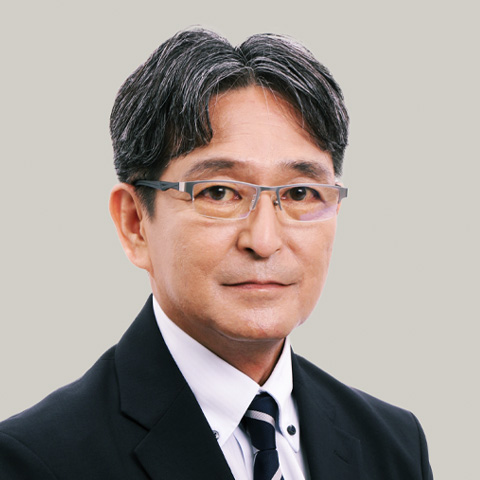
President
Sumito Nishidate
GISTERS / President
In 2002, my wife was diagnosed with GIST, a gastrointestinal stromal tumor. Despite my wife with only having two months to live and suffering from GIST, I started to gather research and information about the cancer to share with other patients and families. I am the chairperson of GISTERS NPO. This originally small rare cancer patient community grew into a large well-known community through networks.
My goals are to make a request to the country to change the treatment environment, to help the patients with the same illness, expand the network to reach all rare cancer patients, and work together on discovering new treatments.
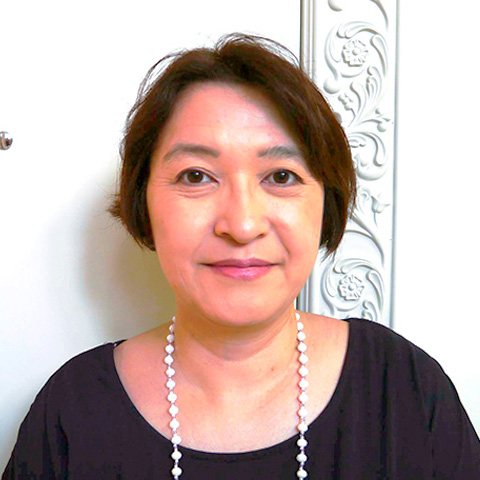
Vice President / Secretary
Yuko Moue
Pediatric Brain Tumor Network of Japan / President
In 1998, my one-year old daughter was diagnosed with medulloblastoma cancer. In 2003, I joined the Pediatric Brain Tumor Network (PBTN) to share information from experiences with other patients who were at a loss without knowing where medical expertise was at that time. Pediatric brain tumors count more than 100 categories
PBTN provides information pertaining to brain tumor for families and patients through bulletin boards, social gatherings, lectures, petitions, and symposiums where questions can be addressed and experiences shared. PBTN collaborates with other brain tumor association or children cancer associations nationwide to improve pediatic cancer care and quality of life.
Although the establishment of expertise on each disease of pediatric cancer (considered as rare cancers) in childhood cancer center hospitals, where an increase in the concentration of the rare pediatric cancers has been observed, , there is a gradual lack of pediatric oncologist and development in cancer treatment. Children with rare cancers are very effective with the chemotherapy and radiation treatment despite that the pediatric medical environment is still in the stage of development. Unfortunately, complications and disorders due to treatment are conspicuous and it is more likely to suffer from secondary cancers and adult diseases after 10 or 20 years. We have considerable hopes in new treatment and novel drugs which do not cause complications related to the cancer or treatment or after-effect, as well as in psychological support for those experience a lifetime with complications.
Along with the arrival of genomic medicine, we share the challenges of being scarce for adult rare cancer patient groups, and collaborate with the industry, government and academia as well with the worlds, with the aim to reach most efficiently a better future for our children.
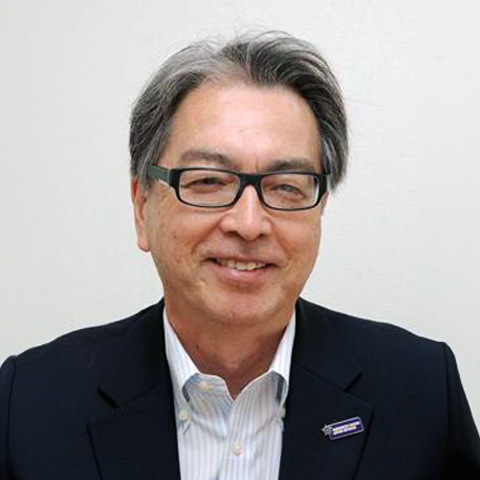
Director
Yoshiyuki Majima
NPO PanCAN JapanNPO / President
In addition to being the first president of RCJ, I am a pancreatic cancer survivor, and the chairperson of NPO PanCAN (Pancreatic Cancer Action Network) Japan. RCJ is a support group for patients and families with rare cancers.
In April 2013, I was underwent a resection of a pancreatic neuroendocrine tumor (PNET), which is classified as a rare cancer. Before receiving the PNET treatment, I fainted three times with insulin attacks, toppled over and suffered a serious injury, from which I did not understand the cause for a long time. Unfortunately, as with me, many rare cancer patients suffer because rare cancers are difficult to diagnose.
Along with the arrival of genomic medicine, light has also come to this area of rare cancers, as it gives the possibility to discover drugs that could be used based on the genomic analysis of cancer cells.
In order to bring this medical care to patients as soon as possible, policy advocacy activities to the administration are important, but it is also important to work with academic societies, researchers, and companies to cooperate in drug discovery activities. The patient association is now asked to become a side promoting drug discovery from the the side waiting for new drugs. It is also important to deepen collaboration with European and American academic leaders in research on rare cancers and members of the international community to take on a stronger role as the patient association. For the coming two years, although it is a short time, I am motivated and dedicated to proactively proceed with the activities.
Thank you for your guidance and support.
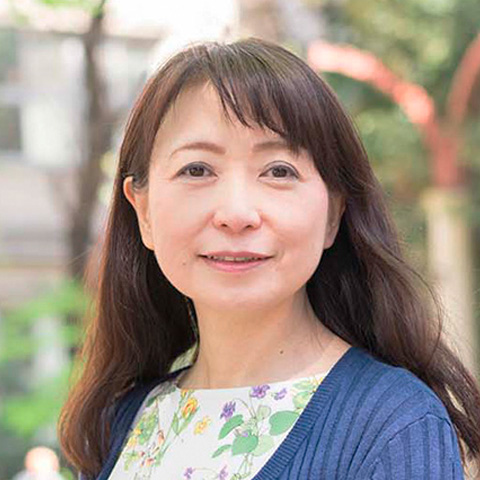
Director
Yasuko Azuma
PMP patients’ network of Japan
I am a pseudomyxoma peritoneal cancer survivor, which is a rare cancer found in the abdomen. Due to the rarity of the cancer, my general doctor was not able to diagnose the symptoms I was experiencing which prolonged getting proper treatment. I am very thankful for the pseudomyxoma peritoneal support group because they helped me understand the symptoms and find a specialized doctor to treat the cancer. I appreciate with gratitude my appointment as the Vice President of PMP Patients’ Network of Japan (retired in 2022).
With the establishment of RCJ, I feel confident that this larger organization, while gathering several individual groups, will support our request for improvement in pathology diagnosis without regional difference, establishment of standard treatment, enrichment of regional medical cooperation, environment susceptible to treatment at a high-volume center, and new drug discovery.
As Director of RCJ and in charge of the RCJ website, I would like to thank everyone for their continual support and cooperation.
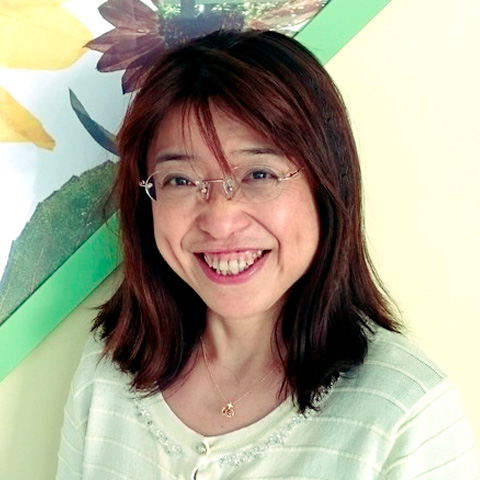
Director
Terumi Oshida
Japan Sarcoma Patients Network “TANPOPO” / President
As the representative of the Tanpopo Sarcoma Cancer Association and working with RCJ, I will do my best to solve common problems. My experience with sarcoma cancer has been far from fortunate. In 2000, I underwent surgery for unknown benign cancer only to relapse and return for second surgery 12 years later. The accurate diagnosis was not established until this relapse when I was diagnosed with sarcoma cancer and transferred to a specialized hospital. I am currently under observation after the second surgery.
My experience from the misdiagnosed and inappropriate treatment has made me well-aware of the importance of information, research, and patient associations. Recently, I was talking with fellow patients about the disadvantages of rare cancers at the patient association. It is due to the small number of patients with rare cancer, limited treatment options, and minimal research available about the rare cancers. Currently, only 15% of cancer patients are diagnosed with having a rare cancer and even smaller percentage when the rare cancers are separated. I strongly believe not only the patients, but also the medical personnel should all collaborate and combine our strength for the same goal and direction, both in Japan and in the world.
Today, our hopes are raising toward genomic medicine, which does not focus on specific cancer types and allows to develop and promote personalized medicine, .. It is important to spread the word about genome treatment and with the help of the RCJ, we can gather our feelings to solve common problems and further develop the technology, promote specialized treatment, and provide information which is currently missing among rare cancers patients.
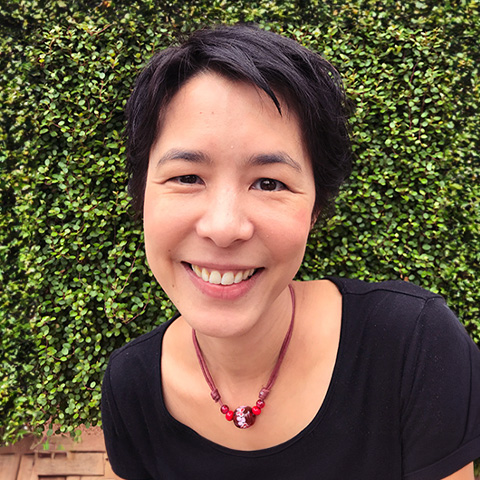
Director
Laureline Gatellier
JAPAN BRAIN TUMOR ALLIANCE / President
I am Belgian living in Japan for over 15 years and the president of the NPO Japan Brain Tumor Network (JBTA) since May 2018..
Early 2016, after being diagnosed with a brain tumor, I underwent two awake surgeries to remove most of the tumor. The surgeries were followed by radiation and chemotherapy, which is still ongoing due to the presence of remaining tumor.
Living with a rare cancer and experiencing it first hand, I wanted to further contribute to improve cancer patients’ lives (specially rare cancers) in Japan and abroad, and became the representative of rare cancers patient association (JBTA and RCJ), I wish to focus on contributing to advanced research and treatment, (which includes genomic medicine), believing this will eventually lead to an improvement in the environment of all cancer patients.
I believe that further progress will be made not only by Japan, but also by strengthening cooperative relationships with Asian countries, academies in Europe and the US, pharmaceutical industry, regulators and patient organizations. Through the efforts of each and every one of us, I hope to find a cure for all cancers starting with rare cancers.
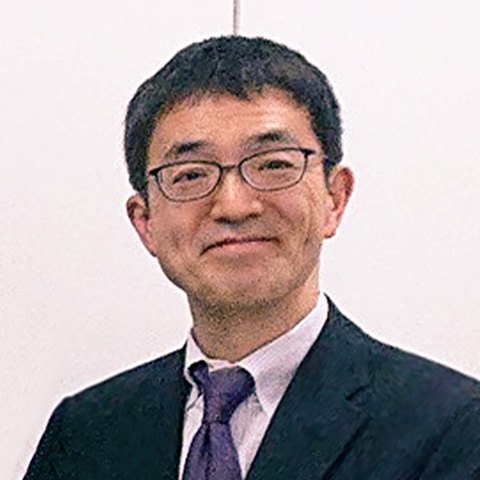
Director
Minoru Kato
Futatsuba—Thymoma/Thymic Carcinoma Patient Support Group / President
I, Minoru Kato, am an executive officer of Futatsuba–Thymoma/Thymic Carcinoma Patient Support Group. I joined this group on the occasion of undergoing the treatment for thymoma three years ago. After joining the group, I could communicate with many people suffering with thymoma or thymic carcinoma, learn about these diseases with them, and share our hardships together. Thymoma and thymic carcinoma are malignant tumors developed in the thymus gland located behind the sternum. Thymoma and thymic carcinoma are rare diseases because the number of patients who are newly diagnosed with thymoma or thymic carcinoma is approximately 1300 a year. Patients are confronted with thymoma and thymic carcinoma while having various problems, such as difficulty in early diagnosis, troublesomeness of selecting appropriate therapy and drug, and painfulness of complications and side effects. I think there are many problems that are common to other rare cancers. I believe that the environment surrounding rare cancers can be greatly improved when the activities of the Rare Cancers Japan are expanded, and I hope that I can contribute to these activities as much as possible. I would be extremely grateful for your help.
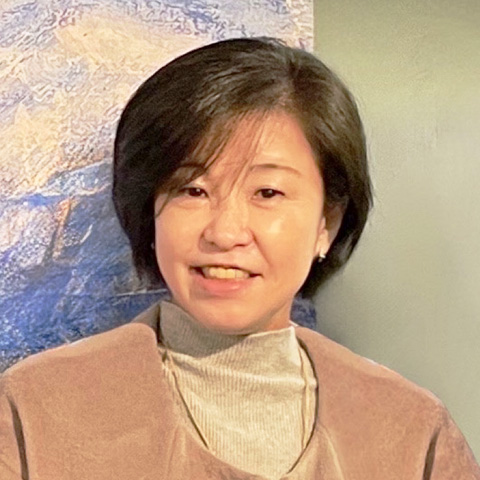
Director
Miyuki Urashiri
Neuroblastoma Japan Family Network / Co-Representative
In 2006, when my daughter was five years old, she was diagnosed with pediatric neuroblastoma and endured more than a year of hospitalization and treatment. Four years and eight months later, she relapsed. As there is no established standard treatment for relapsed neuroblastoma and because she suffered from multiple complications, treatment options were extremely limited. In our search for hope, we encountered the reality of drug lag and drug loss, where effective treatments available overseas were not accessible in Japan.
Through the personal import of unapproved medications and self-funded radiation therapy, my daughter was able to achieve remission again. However, the intensive treatments left her with serious late effects, requiring lifelong medical care.
These experiences made me realize that unless the voices of patients and families are heard, the issues surrounding drug lag, drug loss, and survivorship will not change. In March 2014, I founded the Neuroblastoma Association of Japan and have since been engaged in advocacy activities.
Many childhood cancer survivors live with late effects and face long-term health risks well after treatment ends. Through RCJ, I am committed to promoting better access to treatments, addressing long-term survivorship issues, and helping build an environment where children with cancer can receive continuous medical care and support with peace of mind throughout their lives.


